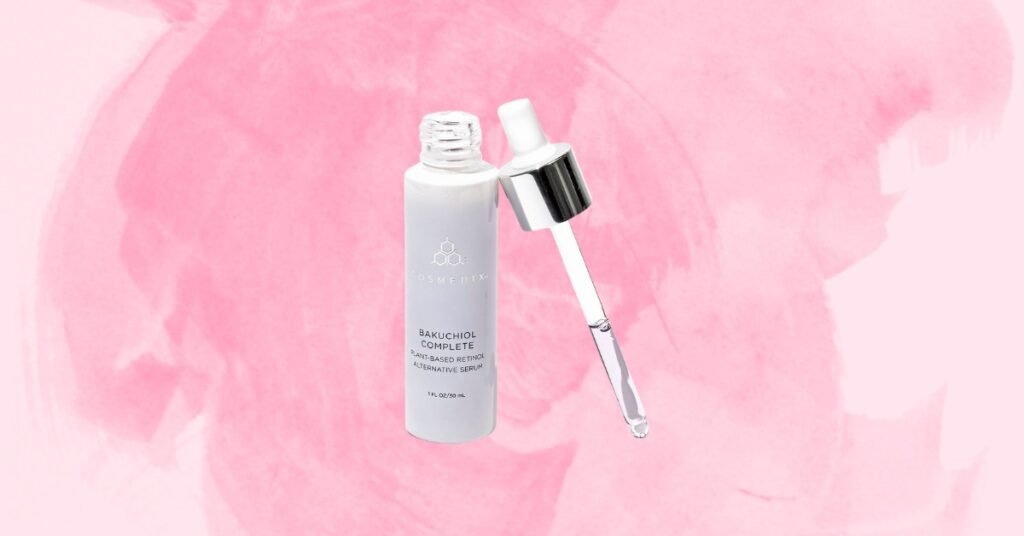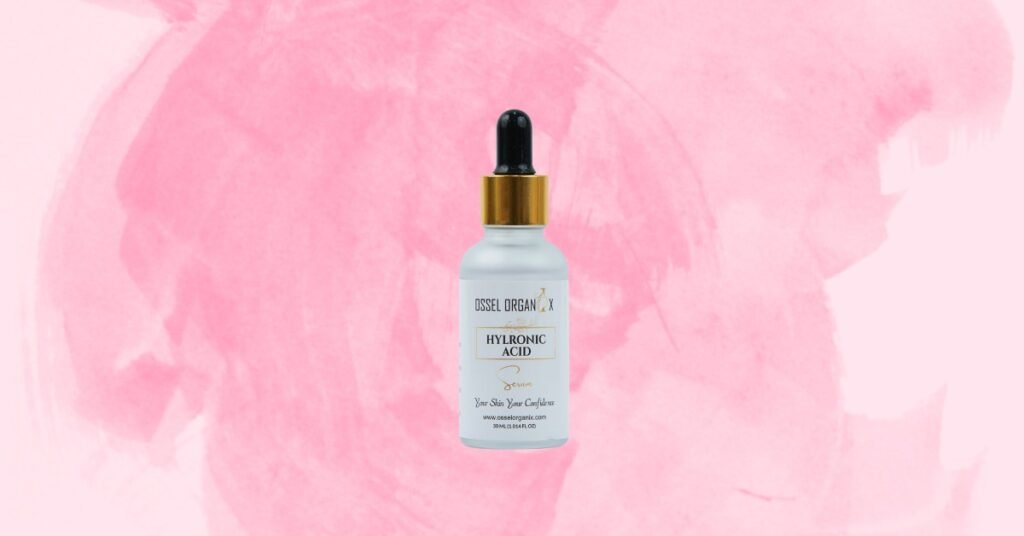How to Find the Right Serum for Your Skin? Reveal Perfection
Serums stand out like shimmering pearls, offering targeted solutions for a myriad of skin concerns. With countless options available from hydrating hyaluronic acid to brightening vitamin C it can feel overwhelming to navigate through this sea of choices.
The right serum can make all the difference, acting as a powerful ally in your skincare routine. If you’re battling dryness, dullness, or signs of aging, there’s a formula out there just waiting to work its magic on your complexion.
In this article, I’ll guide you through simple steps on how to find the right serum for your skin type and concerns.
What is a Serum and What Serum Should I Use
Serums are concentrated formulations designed to penetrate deeply into the skin, delivering active ingredients that target specific concerns such as aging, hyperpigmentation, or hydration.

Traditional moisturizers that primarily act on the surface layer of your skin, serums boast smaller molecules that can reach deeper layers. This allows for a more potent treatment with visible results. Think of them as targeted therapy for your skin.
They are used after cleansing and toning but before moisturizing ensuring that the serum’s restorative properties are fully absorbed without being obstructed by heavier products. Applying serums in both morning and night to maximize their effectiveness.
How are Serums Different from Essences and Ampoules?
The main differences in serums, essences, and ampoules are mentioned below:
- Serums: are often oil- or water-based formulations packed with a high concentration of active ingredients designed to target specific skin concerns like aging, pigmentation, or dehydration. Their lightweight texture allows for deeper penetration into the skin’s layers.
- Essences: serve as hydration boosters with a focus on overall skin health rather than targeted therapies. They usually contain fermented ingredients or botanical extracts that enhance moisture and improve skin texture without overwhelming it with actives.
- Ampoules: take the concept a step further; these are ultra-concentrated treatments intended for short-term use to address specific issues rapidly. Think of them as an intensive boost in your skincare regimen rather than everyday staples.
Which Serum is Right for You?
Consider your skin type oily, dry, sensitive, or combination as this will significantly influence which active ingredients will be most beneficial. With acne-prone skin serums rich in salicylic acid or niacinamide that help unclog pores and minimize breakouts.

Hyaluronic acid-infused serums work wonders for hydration and are ideal for those with parched skin yearning for moisture.
A vitamin C serum packed with antioxidants can boost collagen production while brightening your complexion. Serums containing calming ingredients like chamomile or Centella Asiatica may soothe inflammation and improve overall texture.
7 Best Serum for Your Skin:
Following are the 7 best types of face serums and their uses:
- Retinol Serum
- Bakuchiol Serum
- Hyaluronic Acid Serum
- Salicylic Acid
- Peptides
- Three Antioxidants and Peptides
- Resveratrol
Retinol Serum: Address Fine Lines and Wrinkles or Improve Texture
Tackling fine lines and wrinkles, retinol has a powerhouse ingredient, derived from vitamin A, which works by stimulating cell turnover and boosting collagen production, effectively smoothing out the skin’s surface over time.

Retinol also plays a crucial role in skin renewal processes. Regular use can lead to visibly refined pores and an overall more youthful complexion.
Bakuchiol Serum: to Smooth Lines and Wrinkles
Bakuchiol can often lead to irritation, 0.5 percent bakuchiol cream provides a gentle yet effective alternative. Research comparing this formulation with a 0.5 percent retinol cream found that after 12 weeks, participants experienced significant improvements in skin texture without the associated redness.

Its botanical origins come from the seeds of the Psoralea corylifolia plant, making it appealing for those seeking plant-based skincare options during delicate periods such as pregnancy. Its ability to stabilize collagen production.
Hyaluronic Acid Serum: to Hydrate Combination or Oily Skin
Heavier moisturizers that can clog pores or exacerbate oiliness, this serum is a lightweight ingredient that draws moisture into the skin without disrupting its natural balance.

By holding up to 1,000 times its weight in water, it acts like a sponge ensuring that your skin remains plump and hydrated without feeling greasy.
Formulations that offer multiple molecular weights ensure deeper penetration into various layers of the skin for more comprehensive hydration. Implementing this serum in your morning routine can provide the perfect base beneath makeup or sunscreen.
Salicylic Acid: to Reduce the Appearance of Pores and Prevent Breakouts
Salicylic acid is particularly known for its ability to penetrate deep into the pores and dissolve excess oil and dead skin cells. For enlarged pores and frequent breakouts, incorporating a serum with salicylic acid can be helpful.

This beta hydroxy acid (BHA) not only clears congestion but also helps reduce inflammation, making it an ideal choice for those battling acne-prone or oily skin types.
Alpha hydroxy acids (AHAs) provide results that can help prevent new imperfections from forming while refining existing ones.
Peptides: to Lift Sag, Pick out a Serum Packed
These powerful compounds are essentially chains of amino acids that play a critical role in stimulating collagen production for maintaining the skin’s elasticity.
As we age, our body naturally produces less collagen, and peptide-rich serum in your routine can encourage your skin cells.

All peptides are created equal, some target specific concerns like fine lines or uneven texture while others boost moisture retention and protection against environmental stressors.
Serums featuring types such as Matrixyl or Argireline effectively reduce the appearance of wrinkles and improve overall firmness. Combining these peptides with hydrating ingredients like hyaluronic acid can amplify their lifting effects and provide a youthful glow.
Three Antioxidants and Peptides: to Erase Pigment Problems and Boost Brightness
Serums that feature ingredients known for their unique ability to combat discoloration while brightening skin tone are discussed below:

Vitamin C: It actively inhibits melanin production, making it against pigment issues. This water-soluble vitamin neutralizes free radicals while promoting collagen synthesis, resulting in not only more even skin tone but also enhanced skin elasticity.
Ferulic Acid: This possesses remarkable stabilizing properties, helping to shield these vitamins from degradation. Beyond boosting brightness and reducing hyperpigmentation, its anti-inflammatory effects make it an ideal ally for sensitive skin types.
Phloretin: Derived from apple tree bark and closely related to flavonoids, It effectively evens out pigmentation irregularities by inhibiting melanin production at the cellular level while also working to protect against UV damage.
Resveratrol: to Protect Skin and Slow Down Aging
Derived from grape skins, red wine, and certain berries, this potent antioxidant offers exceptional benefits for maintaining youthful skin. Its ability to neutralize free radicals in defending against external stressors like pollution and UV rays.

Resveratrol has unique anti-inflammatory properties that can soothe irritated skin. It boosts collagen production for retaining skin elasticity and firmness.
Conclusion
Finding the right serum for your skin involves understanding your unique skin type and concerns, as well as familiarizing yourself with the various ingredients that can address those needs.
You can effectively narrow down your options by considering factors such as hydration, anti-aging properties, and sensitivity levels.
Consult with a dermatologist or skin care professional for personalized recommendations tailored to your specific requirements. The journey of discovering how to find the right serum for your skin is not just about product selection; it’s also about incorporating it into a consistent skincare routine for optimal results.
FAQs
What Face Serum Should I Use Daily?
Face serum for daily use largely contains hyaluronic acid to provide hydration and plumpness. Vitamin C serums are excellent for brightening the complexion.
Can I Use Serum without Moisturizer?
Yes, but it may not be the most effective approach. For those with dry or sensitive skin types, skipping moisturizer could lead to increased dryness or irritation over time.
Can I Leave Serum on My Face the Whole Day?
Leaving serum on your face for an extended period, such as the whole day, is generally safe and often recommended.
Can I Mix Serum with Moisturizer?
Yes, it can enhance hydration while delivering active ingredients more effectively to the skin. It is compatible and won’t dilute its effectiveness.
Can Salicylic Acid Cause Acne?
It is recognized for its ability to treat acne. It typically does not cause acne, overuse or incorrect application can lead to skin irritation or dryness.
Which Serum is Best to Get Glass Skin?
Glass skin chooses hyaluronic acid providing that plump and dewy appearance. Niacinamide improves skin texture and minimizes pores.
How to Choose Serum for Your Face?
If you have dry skin, look for serums containing hydrating ingredients like hyaluronic acid, and with acne-prone skin, look for serums with salicylic acid.







